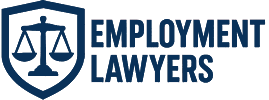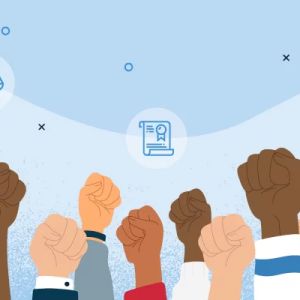Understanding How a Lawyer Can Help with Unemployment Eligibility Disputes
If you’ve recently lost your job and are facing difficulties securing unemployment benefits, you might be wondering what to do next. In the United States, unemployment eligibility can be a tricky issue to navigate, and many people find themselves involved in disputes with their state’s unemployment office. Whether it’s a misunderstanding, a clerical error, or an outright denial, dealing with unemployment eligibility disputes can be frustrating. That’s where a lawyer for unemployment eligibility disputes comes in. I’ve been through the process myself and want to share how a lawyer can help you resolve these issues.
1. Why Do Unemployment Eligibility Disputes Happen?
Before diving into how a lawyer can help, it’s important to understand why unemployment eligibility disputes happen in the first place. From my own experience, I learned that the reasons for such disputes can vary greatly, but here are the most common ones:
1.1 Misunderstanding of Eligibility Requirements
Unemployment eligibility requirements can be complex and vary from state to state. For example, certain states may require that you have worked a specific number of hours or earned a minimum amount of income during your base period. I’ve seen many people mistakenly believe they qualify, only to find out they don’t meet these crucial requirements.
1.2 Employer Disputes
Another common reason for disputes is when an employer contests your eligibility. This happened to me when my former employer wrongly reported that I had voluntarily quit, even though I had been laid off. These kinds of errors can be hard to rectify on your own, but with the help of a lawyer, you can challenge your employer’s claims and protect your right to unemployment benefits.
1.3 Lack of Proper Documentation
Sometimes the issue stems from incomplete or incorrect documentation. When applying for unemployment, you need to provide detailed information about your work history and the reason for your unemployment. Any missing or incorrect information can result in a delayed or denied claim. I learned that it’s essential to keep detailed records, and if an error happens, a lawyer can assist in ensuring your documentation is complete and accurate.
2. How a Lawyer for Unemployment Eligibility Disputes Can Help
Now that you understand why disputes arise, let’s talk about how a lawyer can help resolve these issues. If you find yourself in a dispute with your state unemployment office, having legal representation can make all the difference. Here’s how a lawyer can assist:
2.1 Assessing Your Case
When I first contacted a lawyer, they thoroughly reviewed my case. A lawyer will assess your situation to determine whether your claim was denied correctly or if there was an error on the part of the unemployment office. They’ll look at your work history, the reason for your job separation, and any additional evidence needed. This assessment is crucial, as it helps determine the best course of action moving forward.
2.2 Gathering Evidence
One of the key roles of a lawyer is to gather evidence to support your case. This could include pay stubs, emails, letters from your employer, or witness statements. In my case, my lawyer helped me collect all the documents needed to prove that I hadn’t voluntarily quit, which made a huge difference when I appealed the decision. A lawyer will know exactly what evidence is needed to strengthen your case and present it effectively.
2.3 Filing an Appeal
If your unemployment benefits were denied, a lawyer can help you file an appeal. The appeals process can be complicated and varies by state, but a lawyer experienced in unemployment disputes can guide you through the process and ensure that all necessary paperwork is submitted correctly. In some cases, a lawyer might even represent you in hearings before an unemployment appeals board, giving you the best chance of winning your appeal.
2.4 Negotiating on Your Behalf
If an agreement can be reached without going to court, your lawyer may also act as a negotiator between you and the unemployment office or your former employer. This is especially useful if there are misunderstandings that can be resolved through discussions or mediation. With their experience, a lawyer can advocate for your best interests and potentially expedite the process, saving you time and stress.
3. When to Contact a Lawyer for Unemployment Eligibility Disputes
In my experience, it’s crucial to contact a lawyer as soon as you realize there’s a problem with your unemployment claim. The earlier you get legal help, the better your chances of resolving the issue efficiently. Below are some signs that it’s time to reach out to a lawyer:
3.1 If Your Claim Is Denied
If your unemployment claim is denied, don’t panic. You have the right to appeal, and a lawyer can guide you through the appeals process. If you feel that the denial was based on incorrect information or an unfair decision, a lawyer will work with you to challenge that decision and get your benefits reinstated.
3.2 If Your Employer Contests Your Eligibility
If your former employer disputes your eligibility, this can complicate your claim. Having a lawyer handle the communication with your employer can ensure that your rights are protected and that you’re not wrongly accused of misconduct. I personally found that having legal counsel made a huge difference when dealing with an employer’s objection.
3.3 If You’re Facing Delays in Receiving Benefits
Delays in receiving unemployment benefits can cause a lot of financial strain. If your benefits are delayed for an unexplained reason, or if you’ve been waiting for a decision for a long time, a lawyer can help expedite the process by pushing for a resolution. Lawyers can also help you understand why the delays are happening and what steps can be taken to get things moving.
4. The Cost of Hiring a Lawyer for Unemployment Eligibility Disputes
The cost of hiring a lawyer can vary, but many unemployment attorneys work on a contingency fee basis, meaning you don’t pay unless you win your case. This makes hiring a lawyer for unemployment disputes more accessible, especially if you’re already facing financial difficulties. It’s important to discuss fees upfront so you know what to expect.
4.1 Contingency Fee Arrangements
In my case, I was able to hire a lawyer with no upfront costs due to the contingency fee arrangement. If you win your case, the lawyer takes a percentage of the unemployment benefits that you receive. This type of arrangement ensures that your lawyer is motivated to win your case, as their payment is based on the outcome.
5. Conclusion: Take Action to Protect Your Rights
If you’re facing an unemployment eligibility dispute, don’t hesitate to contact a lawyer. The appeals process can be complicated, and having legal representation can significantly improve your chances of a successful outcome. By working with an experienced lawyer, you can ensure that your rights are protected and that you receive the unemployment benefits you deserve. Remember, the sooner you act, the better your chances of resolving your dispute quickly and effectively.



